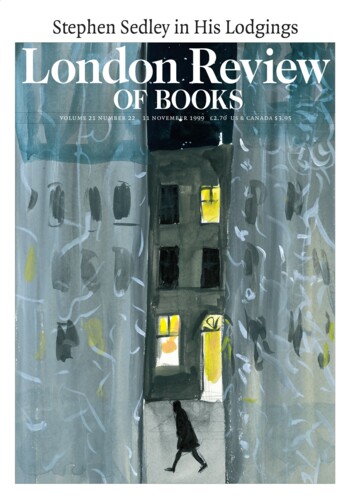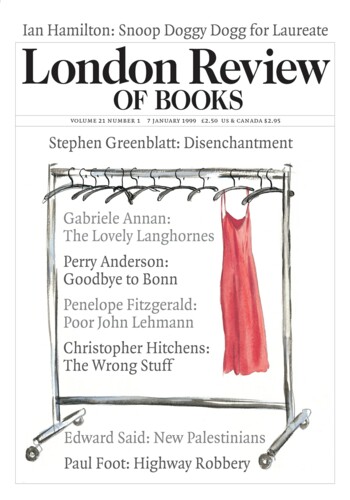Brattishness: Henry Howard
Colin Burrow, 11 November 1999
Although Surrey’s surviving poems can be read in an afternoon, they represent a major achievement for someone whose life was cut short (literally: he was beheaded) at the age of 30. He invented blank verse, as well as the ‘Shakespearean’ form of the sonnet. His poems habitually dwell on isolation: they adopt the voices of Petrarchan lovers brooding on an inner hurt, prisoners lamenting past happiness, or psalmists threatening destruction to their enemies. The most powerful of them adopt the voices of women left by their lovers or husbands. ‘O happy dames’ is spoken by a woman who is watching the sea and waiting for her lover:‘



